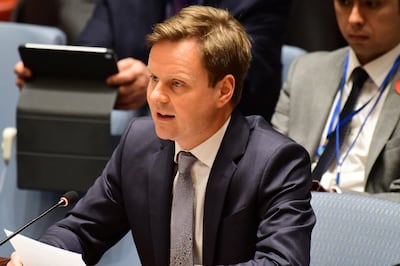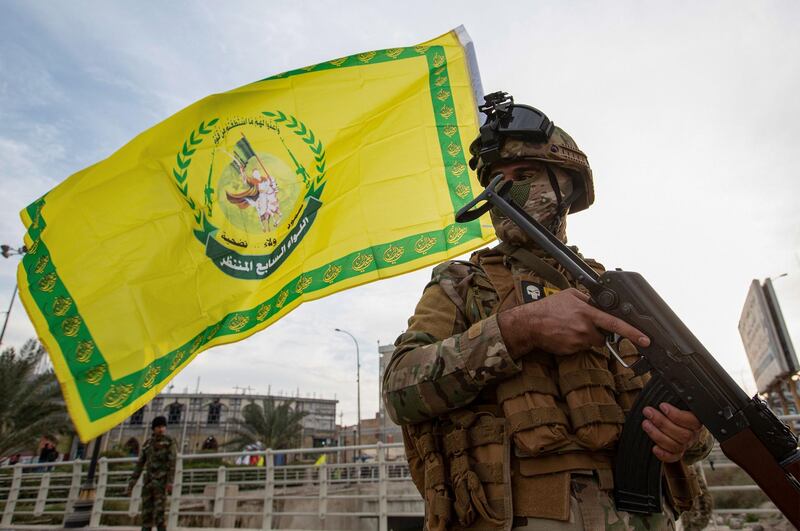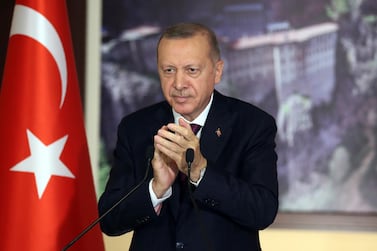An Iraqi militia started a propaganda campaign against the British ambassador to Iraq after he challenged their influence.
Ambassador Stephen Hickey was the subject of a social media attack by a group backed by Iran that featured images of his bloodied face.
In a tweet, Mr Hickey had said that Iraq’s security and development was being held back by “armed groups operating outside state control”.
The message was seen as an attack on the militia, which quickly retaliated. Harakat Hezbollah Al Nujaba, a militia with strong links to Iran, wrote on the messaging app Telegram: "Stop lying and mind your own business and represent your old country as a diplomat," The Telegraph reported.

Two pictures that accompanied the words showed Mr Hickey with his face covered in blood.
The group, founded in 2013, is said to have 10,000 fighters and is the subject of sanctions by the US.
Mr Hickey, who took up his role in September, was also told to stop playing “malicious games” by putting the focus on to militia groups. Another posting stated that the British ambassador should “not to intervene in issues that are bigger than you”.
The UK Foreign Office said the safety of its staff was “of paramount importance”. “We keep our security under constant review," it said.
Mr Hickey was this week in discussions with Iraq Prime Minister Mustafa Al Kadhimi in Baghdad, which he described as “productive” in a tweet alongside a picture of the pair. "We discussed the security and economic challenges facing Iraq and how the UK can best support security, reform and human rights in Iraq," Mr Hickey said.
Mr Al Kadhimi is seen as a reformist and has previously promised to tackle the influence of pro-Iranian militias.
Last month, he ordered a security force investigation into the militia group Kataib Hezbollah’s base as part of his campaign to weaken Iran’s influence.
The Iranian proxies, funded by Tehran, have carried strong influence in the Iraqi parliament and have also been responsible for attacks on British and American bases in the country.
During a rocket attack by militias on Camp Taji in March this year, two US military personnel and one British soldier were killed. Kataib Hezbollah, was blamed by the US for a rocket attack last December on a military base hosting US troops, killing an American contractor.
Mr Hickey, who was previously deputy ambassador in Cairo and Damascus, is expected to remain in post for at least two years.
In a statement to The National, the Foreign Office said: "The UK has long been clear in its support for Iraqi sovereignty and stability, and its position that all armed groups within Iraq should fall under the control of the Iraqi government," the Foreign Office told The National.







